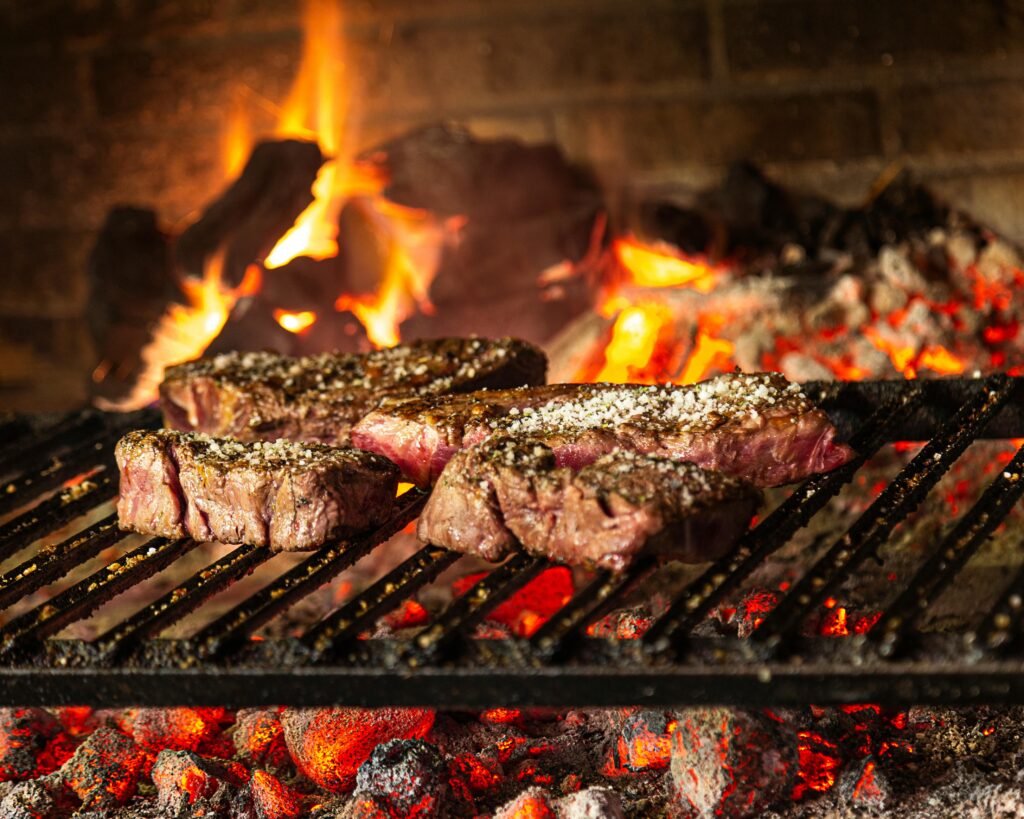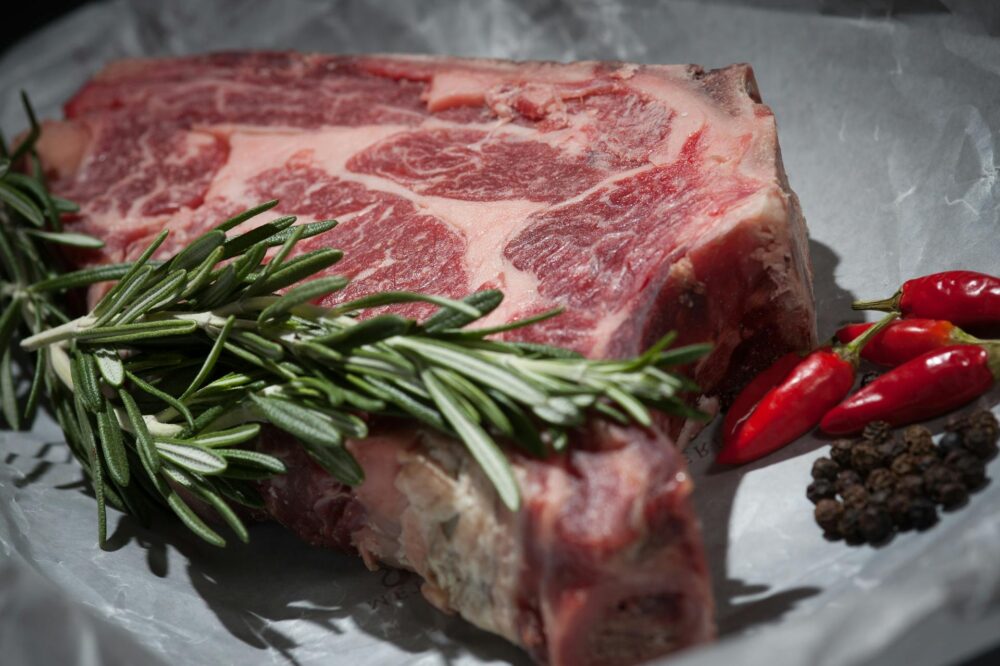Discover why Wagyu beef is celebrated worldwide. Learn what makes Wagyu beef so good, why there’s so much hype, and explore its pros and cons to see if it’s worth the premium price.
Wagyu Beef – What Is So Good About It?
Wagyu beef has become a symbol of ultimate luxury in the culinary world. Renowned for its incredible marbling, buttery tenderness, and rich flavor, this Japanese delicacy has earned a reputation that few other meats can rival. But what truly makes it so special? Is the hype justified, or is it simply an expensive status symbol? Let’s dive into what makes Wagyu beef stand out, the science behind its appeal, and whether it lives up to the fame.
What Makes Wagyu Beef Different?
Wagyu (literally meaning “Japanese cow”) refers to several breeds native to Japan, including the famous Kobe, Matsusaka, and Omi varieties. What sets these cattle apart is their genetic ability to produce intramuscular fat—known as marbling—at a level far beyond ordinary beef.
This marbling gives Wagyu beef its signature texture: tender, juicy, and almost buttery when it melts in your mouth. The fat in Wagyu beef also contains a higher percentage of monounsaturated fats and omega-3 and omega-6 fatty acids, contributing not only to its taste but also to a smoother, less greasy feel than typical cuts.
Farmers in Japan take extraordinary care of their cattle. Wagyu cows are often fed specialized diets of rice bran, corn, and barley, and raised in low-stress environments. The meticulous rearing process ensures superior meat quality and explains the high price tag associated with authentic Wagyu.
Wagu Beef Steak cooked on the BBQ

The Hype Explained: Why Chefs and Food Lovers Can’t Get Enough
Part of the fascination with Wagyu beef lies in its rare sensory experience. When cooked properly, the meat delivers a melt-in-your-mouth sensation unlike any other beef. It doesn’t require heavy seasoning or sauces; the flavor speaks for itself.
Chefs around the world praise its balance of richness and delicacy, which allows for elegant presentation and minimal preparation. Even a small serving can feel indulgent, making it ideal for fine dining.
There’s also the exclusivity factor. Authentic Japanese Wagyu is tightly regulated, with strict grading standards that measure marbling, color, firmness, and texture. The top grades—A4 and A5—are considered the gold standard, commanding premium prices and limited availability.
As the global demand for authentic Wagyu increases, consumers are drawn to the narrative of tradition, care, and craftsmanship. That emotional connection helps fuel the hype.
The Pros of Wagyu Beef
- Exceptional Flavor and Texture – The distinctive marbling ensures a luxurious texture and deep, savory taste.
- Nutritional Benefits – Compared to conventional beef, Wagyu contains more heart-friendly fats, including omega-3 and omega-6 fatty acids.
- Cooking Ease – Because of its high fat content, Wagyu is naturally tender and requires minimal seasoning or complex preparation.
- Prestige and Experience – Serving Wagyu is a culinary statement. It’s not just a meal—it’s an experience of heritage and craftsmanship.
- Versatility – From grilled steaks to sushi-style slices or even burgers, Wagyu adapts beautifully across cuisines.
The Cons of Wagyu Beef
- High Cost – Authentic Wagyu is one of the most expensive meats in the world, often costing hundreds of dollars per pound.
- Caloric Density – The same marbling that makes it delicious also makes it calorie-rich; moderation is essential.
- Counterfeits and Mislabeling – Many “Wagyu” products outside Japan are crossbred or mislabeled, leading to confusion and inflated prices for inferior quality.
- Limited Availability – True Japanese Wagyu is produced in small quantities, making it difficult to find genuine cuts.
- Environmental Impact – Raising Wagyu cattle requires intensive resources, contributing to higher carbon emissions compared to standard beef farming.
Is Wagyu Beef Worth the Hype?
Whether Wagyu beef is “worth it” depends on what you value most. If you appreciate culinary craftsmanship, rich flavor, and a unique dining experience, it’s undoubtedly worth trying at least once. However, if you prioritize affordability or lighter meals, it might feel more like an occasional indulgence than a staple.
Many food lovers describe Wagyu as an unforgettable experience—a small bite of luxury that captures Japan’s devotion to perfection. But it’s essential to buy from reputable sources, especially when seeking true Japanese Wagyu rather than domestic crossbreeds marketed under the same name.
The hype around Wagyu beef isn’t just marketing—it’s rooted in centuries of selective breeding, meticulous care, and a passion for excellence. From the balance of buttery texture to the precise marbling that defines every cut, Wagyu stands as a testament to culinary artistry.
Whether you enjoy it grilled, seared, or sliced raw, Wagyu beef is more than food—it’s a cultural expression of precision and respect for flavor. While its price and availability make it a luxury, its taste and texture easily justify the fascination.
